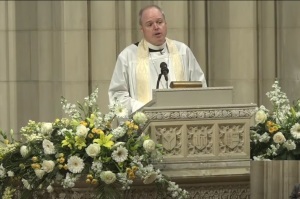Centrist Democrats to Party: Embrace Entitlement Reform
Third Way, a left of center think tank, is warning the Democratic Party to embrace entitlement reform or risk losing funding for a number of other priorities.
"Public investments and entitlements are on a collision course," Jessica Perez, Gabe Horwitz and David Kendall wrote for the report called, "Collision Course: Why Democrats Must Back Entitlement Reform."
"The only way for Democrats to save progressive priorities like NASA, highway funding, and clean energy research is to reform entitlements."
Spending on entitlement programs -- Social Security, Medicare, Medicaid and aid programs for the poor -- are consuming an ever increasing share of the federal budget, Perez, Horwitz and Kendall point out. The cost of these programs has tripled since the 1960s and, with an aging population, spending on Social Security will consume one-fourth of the federal budget in 10 years.
The result of this increased spending, they note, is less spending on public investments.
"Today, there is a $1 trillion gulf between what we are spending on major entitlement programs and the money we devote to public investments. In ten years, the gap will be $2.6 trillion."
Public investments, such as for infrastructure and education, foster economic growth, Perez, Horwitz and Kendall argue. They demonstrate in the report that periods of high public investments have been followed by periods of economic growth.
Increasing taxes and cutting defense spending will not do enough to pay for the increasing costs of entitlement programs, they argue.
The report does not specify the entitlement reforms it would prefer, but Third Way has published previous reports which do make specific recommendations. "Saving Social Security," for instance, recommends a number of changes to Social Security, including raising the retirement age, changing how cost-of-living increases are adjusted, and raising taxes on upper-income workers.
Perez, Horwitz and Kendall do not expect Democrats to embrace entitlement reform before the election. Rather, they encourage the party to use a "lame duck" session (after the election but before the new Congress) to pass a "grand bargain" with Republicans, which would include both entitlement reform and tax reform.
U.S. fiscal policy is currently facing a number of changes, dubbed the "fiscal cliff," that could cause a recession, according to the Congressional Budget Office. These changes include tax increases and spending cuts, mostly to the Defense Department budget. Democratic lawmakers should view the "fiscal cliff" as an opportunity, Perez, Horwitz and Kendall argue, to pass necessary reforms to the nation's entitlement programs.
"The fiscal cliff provides Democrats with a unique now or never moment -- a moment to secure a grand bargain on the deficit that is balanced and preserves Democratic priorities."





























